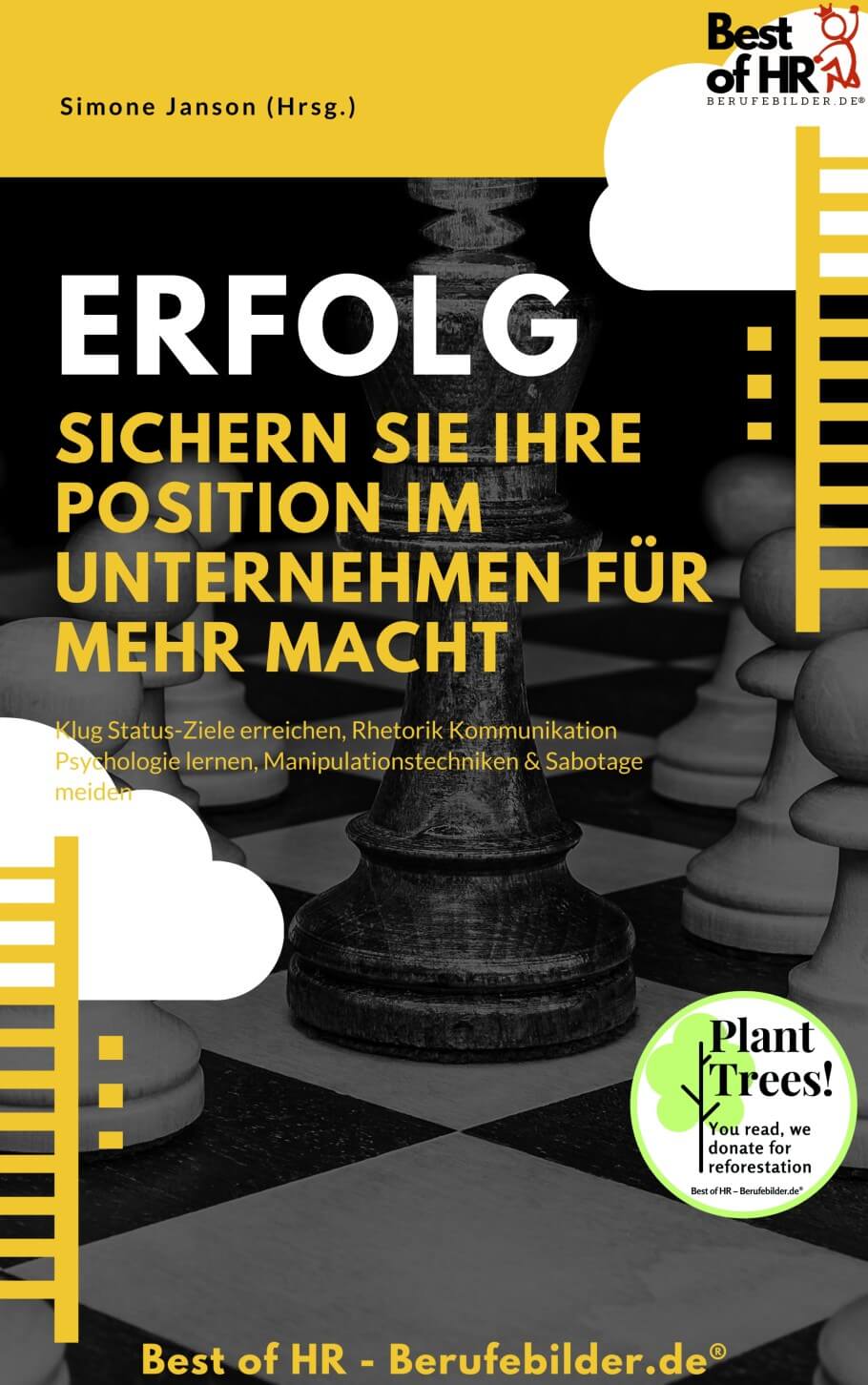Your shopping cart is currently empty!
For their successful, good life Information you really need: Government-funded publisher, awarded the Global Business Award as Publisher of the Year: Books, Magazine, eCourses, data-driven AI-Services. Print and online publications as well as the latest technology go hand in hand - with over 20 years of experience, partners like this Federal Ministry of Education, customers like Samsung, DELL, Telekom or universities. behind it Simone Janson, German Top 10 blogger, referenced in ARD, FAZ, ZEIT, WELT, Wikipedia.
Disclosure & Copyright: Text originally from: “Oxygen as a success factor: Scientifically proven breathing techniques to improve health and increase athletic performance” (2018) get rid of forever” (2019), published by Münchener Verlagsgruppe (MVG), reprinted with the kind permission of the publisher.
Anxiety, Stress & Panic: How To Control Your Thoughts
By Patrick McKeown (More) • Last updated on October 10.01.2024, XNUMX • First published on 16.03.2020/XNUMX/XNUMX • So far 4213 readers, 1526 social media shares Likes & Reviews (5 / 5) • Read & write comments
We consider reason to be the most important ability of the human species; yet most have People very little real control over their mind as it races from one thought to the next.

- A controlled mind as an essential characteristic of quality of life
- What helps against melancholy and depression?
- 60.000 thoughts a day
- Thinking is not the solution to all problems
- You or your mind - who is in control?
- When thinking becomes torture
- Calm the mind
- Watch carefully against anxiety and depression
- The healthy tidal volume
- Chronic over-breathing
- Checklist: signs of habitual over-breathing
- The disadvantages of over-breathing
- Top books on the subject
- Read text as PDF
- Advice on success, goal achievement or marketing
- Book eCourse on Demand
- Skate eBook as desired
A controlled mind as an essential characteristic of quality of life
excessive mental activity, Stress, depression and anxiety are nothing more than the absence of such control. How much control do you have over your mind? How long do you manage to consciously stop thinking? A calm mind is a controlled mind. You can actually do it yourself decide to think or not to think. Then verlieren You no longer get bogged down in superfluous trains of thought, but know what thoughts your mind is occupied with most of the time. If we don't have control over our mind, then we have - nothing.
Control over our minds is the one of our essential faculties that determines our quality of life here on earth. Nevertheless, our educational institutions, our religious and medical institutions devote very little attention to it. Is not that crazy? If you had the opportunity to peek into other people's minds, you would see that the turmoil there is the same as inside your own head. The flawless facade conceals fears for the future and mourning for the past. Below the surface, the thoughts repeat themselves at a frantic pace.
What helps against melancholy and depression?
The books on the subject (advertising)
It may not have reached the scale of depressed people, but there are common features. In fact, we are all not far from mental health problems, and only a few stressful events are missing to get there. When several such events come together, it takes its toll on each of us - unless, of course, we have a basic understanding of our thought processes and are able to understand our Brain adequate supply of oxygen.
In our highly developed western Welt, in which we die Intelligence so appreciate and psychic Problems stigmatize so severely, healthy people going through bouts of sadness or depression have few avenues to seek help. However, addressing such processes early is the key to reversing them. My interest in these areas stems from suffering from both asthma and nagging thoughts for many years.
60.000 thoughts a day
Psychologists estimate that we think 60 thoughts every day. 000 percent of these thoughts repeat themselves over and over and are useless. In ignorance of the contents of our own mind, we are literally at the mercy of it. Habitual brooding and, more importantly, lack of awareness of what is going on in our minds are the result of this disposition of the human mind.
The individual content is shaped by the experiences we have had in the past, by ours Education and by societal and social influences. It is maintained through constant repetition. In the western world, thinking is generally considered a good thing, while not thinking is seen as a sign of laziness or dullness. We often hear of "brilliant thinkers" who have made groundbreaking discoveries or who have been granted profound insights. But to tell the truth: Such aha experiences usually do not come about through thinking, but when thinking comes to a standstill. Our educational system teaches us how to think. At school and University the mind is trained and formed into an excellent analytical tool.
Thinking is not the solution to all problems
Discounts for your success (advertising)!
We consider thinking as Solution for all situations in life. When we have a problem, we believe that the more we think about it, the better our chances of solving it. We didn't think that way when we were kids. This thinking is a learned habit that we have developed over time. If you think it's good to think a lot, look at the pressures on people whose minds are racking their brains with constant brooding. I often see a man on Galway's high street who gets so worked up that he'll eat anything that's in his Head come, say it out loud on the street. His spirit has completely taken control of him. The weight of his thoughts literally pushes him to the ground. he is depressed Many of us are like this man, except we don't speak our thoughts out loud. Instead, an inner one is constantly rattling in our heads Conversation.
We brood over the same thing day in and day out, incessantly and without really clarifying anything. If you observe your own thoughts more closely, you will no doubt come to the conclusion that the human mind in the western world must have really gone haywire. Thinking about something in practical terms is a good thing and serves an important function. However, much of our musing is not about such practical ends. We spend most of our thoughts on pointless, endlessly repeating worries and fears. If you could manage to reduce this mind-circling by 50 percent, you would be lucky. If you could stop the useless, constant brooding altogether, you would lead a life of bliss. To put it bluntly, brooding makes you miserable. Less mental activity, on the other hand, increases satisfaction. Brooding is basically a disease.
You or your mind - who is in control?
Human thinking began tens of thousands of years ago. It is by far the most important feature that differentiates our abilities from those of animals. In practical terms, as I said, thinking is extremely useful. We need it to drive a car, to make decisions, Strategies to define events to plan or to cope with specific situations. If you are planning to go shopping, then think about what groceries are missing from your pantry.
When you travel by air to organize, then think about the schedule, the price and the route. When you write a letter, first think about what you want to say. When you drive to the gas station, think about which pump you want to use and how much money you want to spend. When contacting a delivery company, think about what you need, in what quantities, at what price and by what delivery date. If someone has overcharged you, decide what you want to tell them and do it. Thinking, when used for practical purposes as in these examples, is a wonderful thing—essential and productive.
When thinking becomes torture
However, we don't use 95 percent of our thoughts to deal with a very concrete, practical situation. Most of our thoughts are unnecessary and repetitive. You can see this in yourself when you do your mental activities I aufmerksam observe. A typical situation familiar to many: you are strolling through a wonderfully quiet park and instead of enjoying the sun warming your back, enjoying the sight of the flowers and listening to the children playing, your attention is completely absorbed by what Giving it back to your neighbor who lectured you yesterday.
This kind of thinking is pure torture. It does nothing to improve your situation; it doesn't help you in the slightest. On the contrary: if you brood incessantly in this way, it can drive you into depression. And not only that you drive yourself crazy in this way: You also miss all the wonderful things that life has in store for you.
Calm the mind
Regardless of how fast once the mind merry-go-round is spinning, everyone has the ability to take control of their mind again. The mental din has settled like a shell over the calm, unmoving mind. Anything that helps "declutter" your mind will bring the original calm to the surface again. It's up to you whether you let the merry-go-round of thoughts continue to spin in your head and live with the consequences, or whether you learn to devote yourself to tending your mind like a skilled gardener, pulling out the weeds so the flowers can flourish.
For a gardener who is asleep and inattentive, the weeds will soon have grown into an impenetrable jungle. A good gardener is awake and alert. He knows exactly what is going on in every moment, has an alert Eye on its land and removes weeds as soon as they put out their first shoots. Be a good gardener to your mind.
Watch carefully against anxiety and depression
In a mind that is carefully watched, anxiety and depression cannot take root; both find only a breeding ground where the necessary awareness is missing. A quiet mind enables us to relate to life in a very different way and truly live our lives, rather than wasting our attention on useless musings. When our mind is quiet, we no longer waste as much of ours Energy any harmful nonsense and can instead focus on the things that really matter to us with improved focus.
Although it is basically very easy to regain control of your mind, it requires attention and care. Do you want a life without worry and dissatisfaction? There are simple self-help breathing and mindfulness exercises that can be used to treat the physiological and psychological aspects of depression, anxiety, and stress.
The healthy tidal volume
With normal breathing, we take ten to twelve breaths per minute. Each breath has an approximate volume of half a liter. That corresponds to a healthy tidal volume of five to six liters of air per minute - this is how it is described in every medical textbook. Normal, healthy breathing is calm, quiet, relaxed, regular and accompanied by little movement. People suffering from anxiety and depression have tidal volumes that exceed this healthy amount.
For example, an average-sized person with anxiety takes in 15 to 20 breaths per minute and more than the normal pint of air with each breath. In addition, their breathing is often interrupted by sighs. If we assume that each breath has a volume of 700 milliliters, the person has an average tidal volume ten to 15 liters of air per minute. Applied to nutrition, this would correspond to six to nine meals a day!
Chronic over-breathing
Chronic over breathing or hyper ventilation means that we habitually take in more air than our body needs. This is similar in many ways to people who get into the habit of overeating. If we breathe more than our body needs over a 24-hour period, this habit becomes established. Dr. Stephen Demeter confirms this with his statement: "Prolonged hyperventilation (for more than 24 hours) seems to sensitize the brain and cause hyperventilation to continue."
What factors increase tidal volume? The strengthening of breathing is a consequence of our modern life. A number of factors contribute to overbreathing, including strong ones emotions, time pressure, pressure, anger, stress, anxiety, overeating, processed foods, the misconception that taking deep breaths is good, lack of exercise, increased talking, and high indoor temperatures.
Checklist: signs of habitual over-breathing
Perhaps you assume that you are not hyperventilating. However, most people experience over-breathing very subtly. It runs in the background so that it often goes unnoticed. The typical characteristics with which patients come to my practices include:
- Mouth breathing
- Audible breathing during periods of rest
- Regular sighing
- Short, quick breath through the nose
- Irregular breath
- Breathing interruptions (apneas)
- Take a deep breath before speaking
- Deep yawning
- Upper chest movements when breathing
- Shoulder movements when breathing
- Other noticeable breathing movements
- Exertion while breathing
- Difficult breathing at night
How many of these characteristics apply to you? Do you sigh often? Do you breathe through your mouth? Do you wake up in the morning with a dry mouth? Does your breathing speed up or become erratic when you are stressed? You can check the quality of your breathing yourself with a simple breath-hold test; To do this, we measure the so-called control pause (CP), i.e. the breath holding time.
The disadvantages of over-breathing
How important one efficient breathing is, will clear, when you realize that the amount of oxygen delivered to tissues and organs decreases when we take in too much air through our lungs.
Overbreathing has a detrimental effect on two gases that are fundamental to our body's oxygenation: nitric oxide and carbon dioxide. In 1991, nitrogen monoxide (NO) was detected in the exhaled air and subsequent intensive research efforts revealed that the gas is produced in both the blood vessels and the paranasal sinuses.
When we breathe in through the nose, large amounts of NO are released within the nasal airways. The NO follows the airflow to the lungs, where it helps dilate the blood vessels. In this way increases it the oxygen uptake in the blood. When we breathe in slowly and gently through our nose, we allow our body to take advantage of the beneficial effects of nitric oxide from the nose.
Top books on the subject
Read text as PDF
Acquire this text as a PDF (only for own use without passing it on according to Terms and conditions): Please send us one after purchase eMail with the desired title supportberufebilder.de, we will then send the PDF to you immediately. You can also purchase text series.
4,99€Buy
Advice on success, goal achievement or marketing
You have Ask round to Career, Recruiting, personal development or increasing reach? Our AI consultant will help you for 5 euros a month – free for book buyers. We offer special ones for other topics IT services
5,00€ / per month Book
Book eCourse on Demand
Up to 30 lessons with 4 learning tasks each + final lesson as a PDF download. Please send us one after purchase eMail with the desired title supportberufebilder.de. Alternatively, we would be happy to put your course together for you or offer you a personal, regular one eMail-Course - all further information!
29,99€Buy
Skate eBook as desired
If our store does not offer you your desired topic: We will be happy to put together a book according to your wishes and deliver it in a format of yours Choice. Please sign us after purchase supportberufebilder.de
79,99€Buy
Here writes for you
 Patrick McKeown is a naturopath & director of Buteyko Clinic International. Having suffered from asthma and other respiratory disorders for over 20 years, the subject of breathing is very important to Patrick McKeown. In 2002 he completed his training in the Buteyko method, a complementary medicine method for the treatment of obstructive airways diseases, at the Buteyko Clinic in Moscow. Today he is not only the director of the Buteyko Clinic International but also a member of several medical committees and societies. He gives workshops and lectures around the world on the subject of breathing disorders and teaches other naturopaths in the Buteyko method. In addition, he has already written several books that have been translated into over ten languages. All texts by Patrick McKeown.
Patrick McKeown is a naturopath & director of Buteyko Clinic International. Having suffered from asthma and other respiratory disorders for over 20 years, the subject of breathing is very important to Patrick McKeown. In 2002 he completed his training in the Buteyko method, a complementary medicine method for the treatment of obstructive airways diseases, at the Buteyko Clinic in Moscow. Today he is not only the director of the Buteyko Clinic International but also a member of several medical committees and societies. He gives workshops and lectures around the world on the subject of breathing disorders and teaches other naturopaths in the Buteyko method. In addition, he has already written several books that have been translated into over ten languages. All texts by Patrick McKeown.
7 Responses to “Anxiety, Stress & Panic: How to Control Your Thoughts”
-
in the WELT about job advertisements and bullshit bingo - Exciting contributionfHPeyPUNg8 @Simone Janson
-
Sense & Usinness of #Job advertisements:
Pure Bullshit Bingo?
- Exciting contributionP5knfuQMFU
#hr #recruiting -
Pure Bullshit Bingo? Column in DIE WELT about the sense and nonsense of job advertisements - Exciting contribution7U2DfUnuXI
-
#Site ads - pure bullshit bingo?
- Exciting contributionGYSDC9URsp
@professions -
Column on the sense and nonsense of job advertisements: Pure bullshit bingo? - Exciting contributionnuFIbaHz3s
-
Column in DIE WELT about the sense and nonsense of job advertisements: Pure bullshit bingo ?: Who has not already b… - Exciting contributionn2gA5cTufk
-
Column in DIE WELT about the sense and nonsense of job advertisements: Pure Bullshit Bingo ?: Who has si… - Exciting contribution2bXEynZBE7 #Profile #Development


















Post a Comment